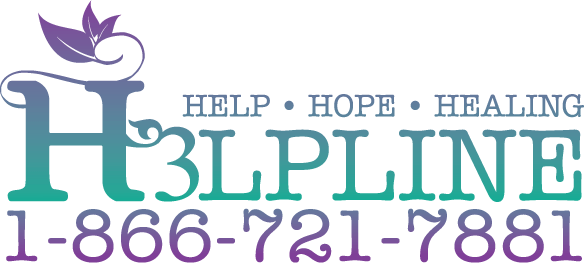Have you taken the abortion pill and changed your mind? Call the Abortion Pill Reversal Hotline: (877) 558-0333
Abortion Information
Your safety should be a priority
Deciding to have an abortion is a big decision that could impact you for years to come. Making sure you know about the procedure and the possible risks is an important part of making an informed decision. It is also important that you know your patient rights. We do not refer for or perform abortions. We provide education on abortion and pregnancy options.
Abortion Pill Reversal
If you choose to take the first medication in a chemical abortion (mifepristone), and then change your mind, there is a chance that the abortion can be reversed. Natural progesterone can be used to successfully continue your pregnancy and give birth to a healthy baby. Call (877) 558-0333 for more information or visit abortionpillreversal.com.
Abortion safety checklist
Am I pregnant?
Pregnancy tests are not always accurate. Get your pregnancy confirmed by a medical professional. An ultrasound can tell if the baby is in the uterus and has a heartbeat and how far along you are.
Why is it important to get an ultrasound before having an abortion procedure?
1. An ultrasound can determine how far along you are. How far along you are will determine which type of abortion procedure you will need. For example, a chemical abortion can only be done up to 10 weeks after your last menstrual period. Having a chemical abortion after 10 weeks can be dangerous.
2. An ultrasound shows whether or not the baby is in the right place. If the baby is not in the uterus, or womb, but is outside the uterus, an ectopic pregnancy has occurred. An ectopic pregnancy can be life-threatening and an abortion procedure will not help this situation.
3. An ultrasound shows whether or not the baby has a heartbeat. Approximately 20-25% of pregnancies end in miscarriage, which is the loss of the pregnancy at less than 20 weeks. If the baby does not have a heartbeat, an abortion procedure is not necessary, and may actually cause more harm.
Do I understand the potential risks?
Every medical procedure, including abortion, carries the risk of complications. You have the legal right to give fully informed consent.
Have I considered alternatives to abortion?
Abortion may seem like the best fit for your current circumstances, but learning about other options you have is a good idea. Make an appointment with us today to talk about your options
Have I received information about the abortion provider?
If you schedule an abortion, ask for the name of the doctor or healthcare professional in charge. Find out if they are licensed and board-certified. Also find out if there are malpractice cases or disciplinary actions against them. You can check online at www.docinfo.org.
Ask: Will I feel pain?
People have different levels of tolerance for physical pain. One survey of women who had local anesthesia for abortion revealed that about half experienced “moderate to severe pain” and the other half, “none to mild pain.”
Do I know what to do if I change my mind?
Abortion is your decision – you can change your mind at any time before the procedure starts. Some have changed their minds after taking the first set of pills for a chemical abortion. It’s ok to change your mind. Don’t allow anyone to pressure you.
Do I know how the clinic handles complications during the procedure?
Ask if the abortion doctor has admitting privileges to a hospital nearby should you have an emergency.
Ask: What feelings can I expect after abortion?
Many women experience initial relief, but months and even years later, some struggle with their decision.
Do I know my rights as a minor?
No one can legally force you to have an aboriton, including your parents. The decision you make must be free, voluntary, independent, and non-coerced.
Have I been tested for sexually transmitted infections (STI’s)?
Pelvic infections can occure after abortion. Any surgical procedure can be complicated by infection.
Why should I know my blood type?
Pregnant women who are Rh negative should receive an injection of RhoGAM to prevent the formation of antibodies that may harm current or future pregnancies.
Information from Before You Decide, Care Net.
We can help you answer these questions and empower you to make an informed decision.
Surgical vs Chemical Abortion
Chemical Abortion
A chemical abortion is FDA-approved up to 10 weeks after a woman’s last menstrual period (LMP). The procedure requires taking two pills: Mifepristone and Misoprostol. These pills are not the same as the emergency contraceptive, The Morning After Pill or Plan B One Step. Abortion pill reversal is possible if action is taken after the first dose.
1. Mifepristone
This first pill blocks her body’s ability to recognize progesterone by the uterus, blocking nutrients to the baby and causing the uterine lining to break down, ending the life of the developing embryo.
2. Misoprostol
Taken 24-48 hours later, this second pill causes the uterus to contract and expel the developing baby, which is a 24-48 hour process.
Possible side effects
Immediate and long-term risks and side effects of the abortion pill may include:
- Abdominal pain
- Severe cramping
- Headaches
- Nausea
- Fatigue
- Fever and chills
- Dizziness
- Vomiting
- Diarrhea
- Weakness
- Infection
- Heavy bleeding
- Trauma from seeing embryonic parts expelled
- Possible birth defects if pregnancy is not successfully terminated
All methods of chemical abortion have an associated failure rate, and surgical abortion may be required to complete the abortion. Reasons for surgical intervention include prolonged or excessive bleeding, incomplete abortion (remnants of fetal tissue in the uterus) or an ongoing pregnancy.
Because these pills are mailed WITHOUT proof of viability and with no follow-up appointment required, women are facing incomplete abortions, which can cause hemorrhaging, infection, and sometimes death if left untreated.
Surgical Abortion
Surgical abortions are done by opening the cervix and passing instruments into the uterus to suction, grasp, pull, and scrape the pregnancy out. The exact procedure is determined by the baby’s level of growth.
SUCTION (ASPIRATION) DILATION AND curettage (D&C) – Up to 14 weeks LMP
Most early surgical abortions are performed using this method. Local anesthesia is typically offered to reduce pain. The abortion involves opening the cervix, passing a tube inside the uterus, and attaching it to suction device which pulls the embryo out.
Dilation and Evacuation (D&E) – 15 weeks LMP and up
Most second trimester abortions are performed using this method. Local anesthesia, oral, or intravenous pain medications and sedation are commonly used. Besides the need to open the cervix much wider, the main difference between this procedure and a first trimester abortion is the use of forceps to grasp fetal parts and remove the baby in pieces. D&E is associated with a much higher risk of complications compared to a first trimester surgical abortion.
D&E After Viability – 24 weeks LMP and up
This procedure typically takes 2–3 days and is associated with increased risk to the life and health of the mother. General anesthesia is usually recommended, if available. Drugs may be injected into the fetus or the amniotic fluid to stop the baby’s heart before starting the procedure. The cervix is opened wide, the amniotic sac is broken, and forceps are used to dismember the fetus. The “Intact D&E” pulls the fetus out legs first, then crushes the skull in order to remove the fetus in one piece.
Possible side effects
Immediate risks and side effects of surgical abortions may include:
- Cramping
- Nausea
- Fever
- Abdominal pain
- Anesthesia complications
- Infection
- Damage to the cervix
- Heavy or prolonged bleeding
- Endotoxic shock
- Convulsions
- Blood clots
- Tearing of the uterine lining
- Death
Long-term risks and side effects of surgical abortions may include:
- Scar tissue
- Increased risk of breast cancer
- Increased risk of cervical cancer
- Damage to reproductive organs
- Increased risk of infertility
- Increased risk of miscarriage
Beyond the physical
How will I feel after an abortion? Choosing an abortion can have long-term emotional and mental effects. Sometimes these effects don’t show up until months or even years later.
emotional & psychological side effects
The reality and trauma of an abruptly ended pregnancy can bring on emotional and psychological side effects, ranging from regret to more serious complications like depression. You may experience these effects immediately following the abortion or unexpectedly several months to years later. The intensity or duration of these effects will also vary from one person to another.
Emotional and psychological side effects/risks may include:
- Regret
- Anger
- Guilt
- Depression
- Drug and alcohol use
- Anxiety
- Sense of loneliness or isolation
- Loss of self-confidence
- Symptoms consistent with post-traumatic stress disorder (PTSD)
- Flashbacks of pregnancy or abortion
- Insomnia or nightmares
- Eating disorders
- Relationship issues
- Suicidal thoughts and behavior
- The risk for emotional or mental complications from an abortion may be increased if you have a history of depression or anxiety before having an abortion
If you have had an abortion and are suffering from emotional or mental effects, know that you are not alone. We are here to help. We offer resources and monthly support groups for women who are seeking healing in this area.
YOU HAVE OPTIONS. WE CAN HELP.
It may seem like having an abortion is the easy solution to an unexpected pregnancy, and you can just move on. It is not that simple. Abortion is a medical procedure with many possible risks and side effects. It can be a life-changing event with significant physical and emotional consequences. Many women who have had past abortions may continue to struggle their entire lives with their abortion decision and wish they had been better informed about abortion procedures and the many risks and side effects.
Learn more about at-home abortion pills, in-clinic abortion procedures, adoption, parenting, and all the options and resources available to you in Virginia. While we do not provide or refer for abortion services, we can answer your questions about side effects, what to expect, and more. All services are confidential and at no cost to you.

